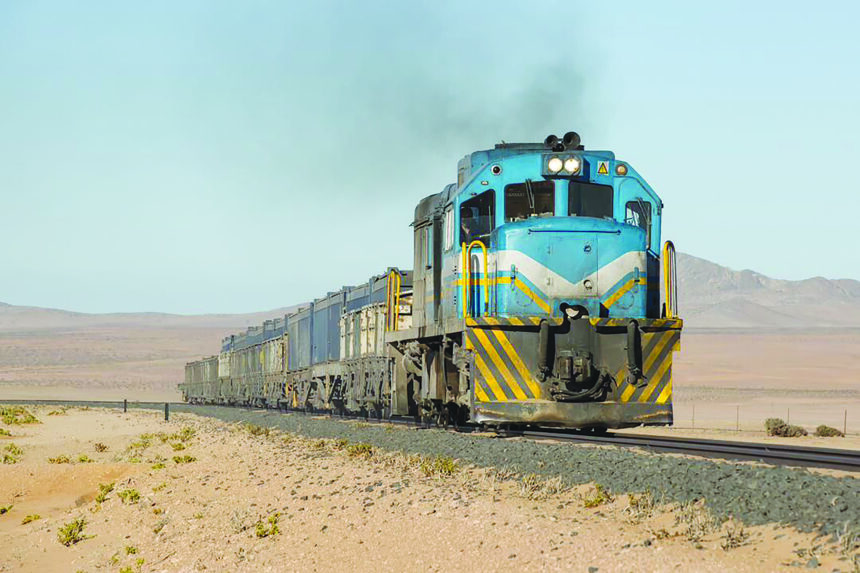KARIBIB – Usakos is a growing town which finds itself between a rock and a hard place. It is struggling to realise its vision of development due to land ownership challenges, as it can neither expand nor achieve its growth endeavours without the government’s intervention.
Usakos’ mayor Irene Simeon-Kurtz said TransNamib owns about 90% of the prime land in the town, making it difficult for the expansion and implementation of much-needed projects.
“This town was literally built around the railway station, which explains why the majority of our land is still under TransNamib’s ownership. We have engaged in discussions with them to release portions of the land for development, but the process has been slow, and it’s holding us back,” she emphasised.
TransNamib indicated that the town council is free to buy the land.
The company holds strategic land across key towns in Namibia, including Windhoek, Walvis Bay, Keetmanshoop and Usakos, supporting its vast railway infrastructure and logistics’ operations.
However, some of this land has not been used for years. The Usakos mayor now wants the urban and rural development ministry to intervene so that the necessary land can be acquired, allowing them to move forward with their transformative vision for the town.
She said without access to land, the town’s plans to create jobs and enhance entrepreneurship remain stagnant.
“We cannot create the necessary industries for our town’s growth if we don’t have the land. TransNamib must come to the table, especially since the government speaks of job-creation and industrialisation, as this land is critical to achieving those goals,” Simeon-Kurtz added.
Usakos has been working to secure land, specifically Erf 75, which is currently under the works ministry’s control via TransNamib, to establish a small and medium enterprises’ (SMEs) park. The town has already secured funding from China for the project, which is expected to bring significant economic benefits, including job-creation for women and the youth.
“This SMEs park is crucial to our town’s industrialisation. It will provide employment opportunities to residents, meaning they won’t have to seek jobs elsewhere. Additionally, it will beautify and develop Usakos, aligning with our goal of becoming an oasis of progress,” she highlighted.
However, the mayor lamented that the project is already a year behind schedule due to the land issue.
The council urgently needs to secure four hectares of commercial land to kickstart the process.
“We were hoping to begin construction in August 2024 if TransNamib were to release the land on time. The establishment of the SMEs park will not only foster economic resilience, but also serve as a model for improving living standards for the residents of Usakos. It is an opportunity to demonstrate how strategic partnerships and visionary leadership can drive sustainable growth and development for Usakos,” she continued.
She said the town recently sent over 150 young people to acquire skills from various vocational training institutions, and wants to ensure they also get the necessary support which will enable them to make a living from their acquired skills.
TransNamib spokesperson Abigail Raubenheimer confirmed the company’s willingness to engage in discussions with the Usakos Town Council, stating that they had already given the council the first option to purchase the land, an option which has not yet been taken up.
“We are committed to constructive dialogue with the council. The development of this land would benefit both the community and our railway operations as it would allow TransNamib to focus on optimising our core activities, while contributing to the region’s economic growth,” she said.
TransNamib has a property portfolio with a value of about N$2.4 billion. This value is indicative of their entire property portfolio, which is categorised as core and non-core properties.



